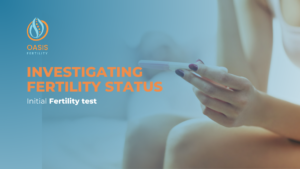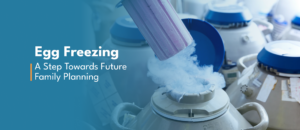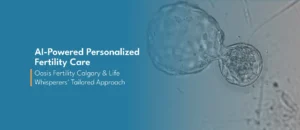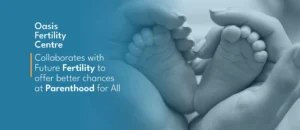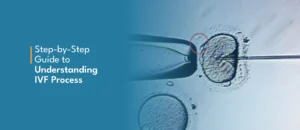Egg Freezing: A Step Towards Future Family Planning

Preserving Possibilities: Egg Freezing and Sperm Selection at Oasis Fertility Centre
In the ever-evolving landscape of reproductive medicine, egg freezing has emerged as a revolutionary option for individuals seeking to preserve their fertility and take control of their future family planning.
At Oasis Fertility Centre, we understand the profound impact that fertility preservation can have on individuals’ lives, which is why we offer cutting-edge egg-freezing services alongside advanced sperm selection techniques.
Join us in exploring the revolutionary and transformative journey of egg freezing that can elevate the chances of your fertility outcomes in future.
What is Egg Freezing?
Egg freezing (Oocyte Cryopreservation) involves the extraction and freezing of a woman’s eggs to preserve her fertility for future use. This groundbreaking technology offers a proactive solution for individuals who wish to delay childbearing due to personal, professional, or medical reasons.
By preserving healthy, young eggs at their peak fertility, individuals can maintain the option to start a family when the time is right, regardless of age or reproductive challenges.
Egg Freezing Process Step by Step
Initial Consultation: The process begins with a consultation with a fertility specialist to discuss the reasons for egg freezing, medical history, and expectations.
The fertility specialist at Oasis Fertility Centre will explain the procedure, risks, and potential outcomes.
Follow this roadmap to confirm your start off!
>>Ovarian Reserve Testing: Before starting the egg-freezing process, ovarian reserve testing is performed to assess the quantity and quality of the eggs. This typically involves blood tests for hormone levels and transvaginal ultrasound to count the follicles in the ovaries.
>>Ovarian Stimulation: Once the testing is complete and deemed satisfactory, ovarian stimulation begins. This involves the use of hormone injections over a period of around 10-14 days to stimulate the ovaries to produce multiple eggs.
>>Monitoring: Throughout the stimulation phase, regular monitoring appointments are scheduled to track the response to the medications. This includes blood tests and ultrasounds to monitor follicle development.
>>Trigger Shot: When the follicles reach an optimal size, a trigger shot of hCG (human chorionic gonadotropin) is administered to induce final egg maturation.
>>Egg Retrieval: The egg-freezing process timeline largely depends on this phase. After the trigger shot, the egg retrieval process occurs about 36 hours later. It’s a small surgical operation done while sedated or anesthetized. Using transvaginal ultrasound guidance, a thin needle is inserted into each follicle to retrieve the eggs.
>>Laboratory Processing: The retrieved eggs are immediately taken to the laboratory, where they are identified, assessed for maturity, and prepared for freezing.
>>Cryopreservation: The mature eggs are then frozen through a process called vitrification, which requires rapidly cooling them to ultra-low temperatures to preserve their viability.
>>Storage: The frozen eggs are stored in liquid nitrogen tanks at a specialized facility until they are needed.
>>Future Use: When the individual is ready to use the frozen eggs for fertility treatment, they are thawed, and fertilized with sperm through either conventional IVF or intracytoplasmic sperm injection (ICSI), and the formed embryos are transferred to the uterus for implantation.
At Oasis Fertility Centre, we recognize that fertility preservation is not just about preserving eggs—it’s about preserving possibilities.
Our comprehensive egg-freezing program provides patients with the support, guidance, and expertise they need to navigate the process with confidence and peace of mind.
From initial consultation to egg retrieval and cryopreservation, our team strives to deliver personalized care and exceptional results at every step of the journey.
What is Egg Freezing age limit?
As a woman ages, her fertility decreases steadily, with a more rapid decline occurring in her late thirties. This is attributed to a significant reduction in both quantity and quality of the eggs available. In the years leading up to menopause, women experience an accelerated loss of oocytes. It’s estimated that women in menopause have around 1,000 or fewer eggs left in their ovaries.
With advancing age, women face higher risks of miscarriages, chromosomal abnormalities, birth defects, and difficulties conceiving. To optimize the chances of preserving healthy and viable eggs, some fertility specialists recommend limiting elective egg freezing to women aged 38 and under.
Sperm Selection: Enhancing Fertility Outcomes
While egg freezing focuses on preserving female fertility, sperm selection plays a crucial role in maximizing the success of assisted reproductive techniques, including in vitro fertilization (IVF) and intracytoplasmic sperm injection (ICSI). At Oasis Fertility Centre, we employ advanced sperm selection techniques to ensure that only the healthiest and most viable sperm are used for fertilization, thereby optimizing the chances of successful conception and healthy pregnancy.
Zymot, a groundbreaking technology, utilizes microfluidic channels to isolate sperm based on their swimming capabilities, ensuring only the most motile and viable sperm are chosen for fertilization. This method enhances egg-freezing outcomes by selecting sperm with optimal fertility potential, increasing the chances of successful embryo development.
Spermslow, another advanced technique, gradually separates sperm based on their swimming speed, allowing for the identification and selection of the most vigorous sperm for fertilization. By choosing sperm with optimal motility, Spermslow improves the efficiency of egg-freezing procedures, resulting in higher-quality embryos.
PICSI, or Physiological Intracytoplasmic Sperm Injection, mimics the natural process of sperm selection by assessing sperm’s ability to bind to specific sugar molecules on the surface of mature eggs. This method ensures the selection of sperm with the highest fertility potential, optimizing the success of egg-freezing cycles.
Lastly, the High Osmotic Sucrose (HOS) test evaluates sperm morphology and function by subjecting them to a hypertonic solution, enabling the identification and selection of sperm with intact membranes and normal physiological characteristics. By selecting sperm with optimal morphology and function, the HOS test improves the quality of sperm used in egg-freezing procedures, leading to better outcomes for our patients.
Egg Freezing Advantages and Disadvantages
Advantages of Egg Freezing
- Fertility Preservation: Egg freezing offers women the opportunity to preserve their fertility by storing eggs when they are younger and of higher quality, allowing them to delay childbearing until a later time.
- Medical Reasons: Women facing medical treatments that may affect fertility, such as chemotherapy or radiation therapy for cancer, can undergo egg freezing to safeguard their ability to have biological children in the future.
- Career and Education: Egg freezing provides women with the flexibility to prioritize their careers, education, or personal goals without worrying about age-related declines in fertility.
- Relationship Timing: Egg freezing can be beneficial for women who have not found a suitable partner or are not ready to start a family but wish to preserve their fertility for future relationships.
- Peace of Mind: Knowing that eggs are frozen and available provides emotional reassurance and reduces the pressure to conceive within a specific timeframe.
Disadvantages of Egg Freezing
Some of the egg freezing side effects could be as follows:
- Success Not Guaranteed: While egg freezing can increase the chances of future pregnancy, it does not guarantee a successful pregnancy or live birth. Success rates varies as per certain factors such as age, egg quality, and the number of eggs retrieved.
- Emotional Impact: The egg-freezing process can somehow be emotionally challenging. It involves decisions about fertility, future family planning, and confronting the uncertainty of success.
- Limited Time Frame: While egg freezing can extend the window of fertility, there is a limit to how long eggs can remain frozen and viable. Storage duration may vary depending on regulations and individual circumstances
Empowering Individuals Through Education and Support
At Oasis Fertility Centre, we believe that knowledge is power, especially when it comes to fertility preservation. That’s why we place a strong emphasis on patient education and support throughout the egg-freezing process. Our experienced fertility specialist in Calgary Alberta Dr Imran Pirwany take the time to explain the procedure, answer any concerns or questions, and empower individuals to make careful and informed decisions about their reproductive health.
We understand that egg freezing can be a deeply personal and emotional journey, which is why we offer compassionate guidance and unwavering support every step of the way. From emotional counseling to financial planning assistance, we try our best to create a supportive and nurturing environment where individuals feel empowered to take control of their fertility and pursue their dreams of parenthood on their own terms.
The Future of Family Planning
As advancements in reproductive technology continue to revolutionize the field of fertility preservation, the future of family planning has never looked brighter. With egg freezing and sperm selection, individuals can unlock new possibilities for building their families, whether they’re pursuing career goals, exploring new relationships, or facing medical challenges.
At Oasis Fertility Centre, we are proud to be offering innovative solutions to individuals seeking to preserve their fertility and embrace the possibilities of the future. With a combination of cutting-edge technology, compassionate support, and unwavering dedication, we are committed to helping individuals turn their dreams of parenthood into reality, one frozen egg and carefully selected sperm at a time.
Embracing Tomorrow with Fertility Empowerment at Oasis Fertility Centre
For us, egg freezing and sperm selection represent more than just medical procedures—they embody hope, empowerment, and the promise of a brighter future.
Through our comprehensive fertility preservation program, we strive to empower individuals to take control of their reproductive health and pursue their dreams of parenthood with confidence and optimism.
Contact our team at Oasis Fertility Centre, where every frozen egg and carefully selected sperm represents a step towards a future filled with possibilities.
Yes, egg freezing is not intended to replace natural conception but rather to provide an option for preserving fertility. After freezing eggs, a woman can attempt to conceive naturally, and if successful, she may not need to use her frozen eggs.
Freezing eggs, also known as oocyte cryopreservation, is a process in which a woman’s eggs are retrieved, frozen, and stored for future use. This allows women to preserve their fertility and have the option to use their eggs for conception at a later time when they are ready to start a family.
After the egg freezing process, the next steps typically involve storing the eggs in a specialized facility until the woman is ready to use them. When the woman decides to use her frozen eggs, they are thawed and fertilized with sperm through IVF or ICSI, and the resulting embryos are transferred to the uterus for implantation.
The ideal age for egg freezing can vary depending on individual circumstances, but fertility experts generally recommend considering egg freezing before the age of 35. However, it’s important to discuss your specific fertility goals and concerns with a specialist at Oasis Fertility Centre to determine the best time for egg freezing.
No, egg freezing does not stop periods. The process of egg freezing involves ovarian stimulation to produce multiple eggs, which may temporarily affect the menstrual cycle. However, once the eggs are frozen, the menstrual cycle typically returns to normal.
Yes, freezing eggs does not guarantee pregnancy, but it preserves the option for future conception. When a woman is ready to use her frozen eggs, they can be thawed, fertilized, and transferred to the uterus for implantation through IVF or ICSI, increasing the chances of pregnancy.


